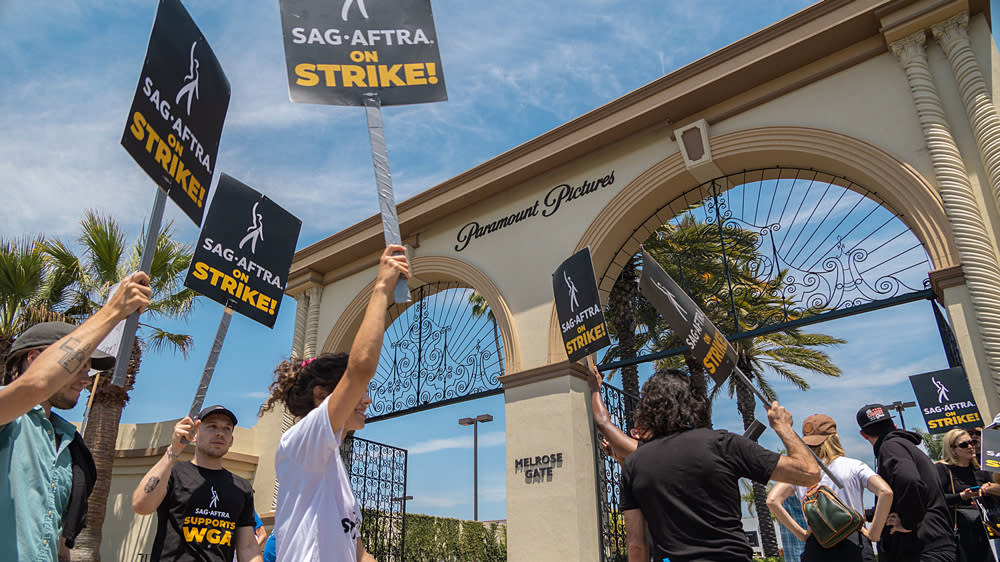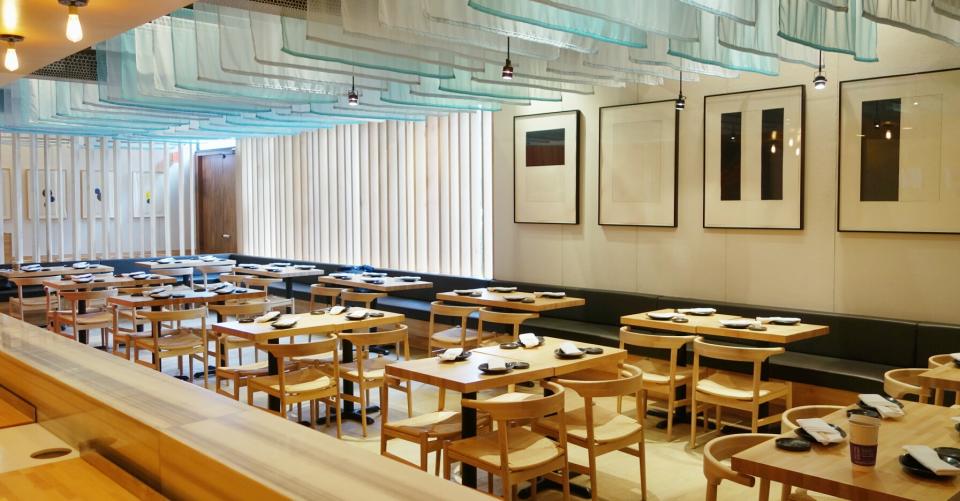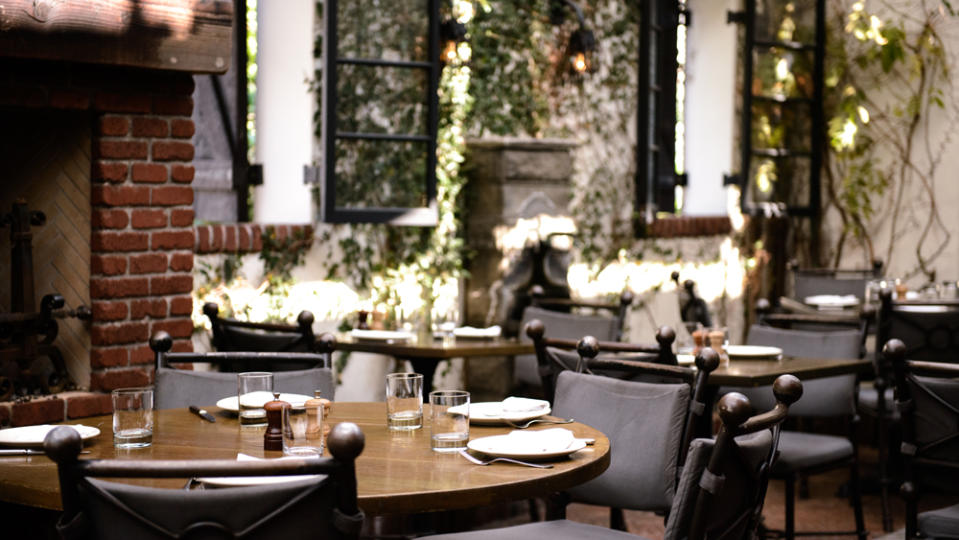L.A.’s Restaurants Are Losing Business Amid the Hollywood Strikes

Three months into the Writers Guild of America (WGA) strike and a month into the Screen Actors Guild (SAG-AFTRA) strike, Hollywood has ground to a halt. And the labor impasses are taking a toll on more than just the entertainment industry. Film and TV production are a major economic engine in Los Angeles so other local industries, like restaurants, are feeling the squeeze too.
So now chefs, food entrepreneurs, and restaurateurs—some of whom estimate business has dipped more than 20 percent in the wake of the strikes—are getting creative to lure customers from the entertainment industry back in and to try to preserve their business models. Meanwhile, they, like everyone else in Los Angeles, have no inkling of when the strikes will end or how much worse the situation will get before it gets better.
More from Robb Report
This Media Mogul's Sprawling Hollywood Hills Estate Just Hit the Market for $60 Million
Inside a $6.4 Million Encino Mansion That's Been Home to LeBron James, Megan Fox and More
This Striking $30 Million L.A. Mansion Pushes the Boundaries of Design
“All the restaurant businesses in L.A. are feeling it,” James Beard Award-winning restaurateur Caroline Styne told Robb Report. “You know, it’s not just about writers or actors. There are thousands of people who rely on this industry who aren’t working right now. The crews, the hair stylists, the makeup artists. It goes so far and so deep. Everybody’s having a hard time right now.”
Citing labor disputes, the WGA, which represents 11,500 screenwriters, went on strike against the Alliance of Motion Picture and Television Producers on May 2. On July 14, also citing labor disputes against the Alliance, SAG-AFTRA began a strike. That union represents 160,000. The strikes have essentially ceased television and film production, which some financial analysts say is costing Hollywood $150 million per week.

While production catering is nonexistent now, those working in the entertainment industry, who are on strike, aren’t going out to eat either. Not only are the powerful cutting back on business meetings, but those who are out of work and struggling no longer have the discretionary funds to spend. They’re even canceling birthday dinners at their favorite neighborhood spots, Styne said.
“It’s not that people aren’t coming out at all, but they’re definitely not coming out as often,” Styne said. “When you’re cutting something from your budget, the first thing that goes is dining out.”
Anecdotally, restaurant reservations in L.A. have gotten easier to secure. Somewhere that used to have a month-long waiting list now has seats available within the week. (However, a spokesperson for Tock, the high-end restaurant reservation system, said there were no “discernable dips or trends in reservation bookings” in the L.A. market since the spring. In fact, they’ve actually seen slight increases on some days.)
Styne, who operates the James Beard Award-winning the Lucques Group with her business partner, Suzanne Goin, estimates business has gone down by 20 percent or more since April. To try to recover some of that business, they are now offering a “Writers & Actors Happy Hour” at A.O.C., their popular wine bar with locations in West Hollywood and Brentwood. Available Monday through Wednesday, 5:30-7:30 p.m., to all guests presenting their union cards, those in the entertainment industry receive 20 percent off the dinner menu and wines by the glass, plus specialty cocktails with cheeky names like Walk the Line (whiskey, watermelon, honey, and lime) and Hard Contract (tequila, grapefruit, and lime).
Similarly, Akasha, located between two film studios in Culver City, is offering 10 percent off all food and drinks for guests presenting a SAG-AFTRA, WGA, or IATSE (the film crew union) card. Chef and owner Akasha Richmond said they’ve seen a large dip in business, especially in corporate catering.
“As an artist, I totally understand the strike, but this affects so many other businesses and people,” Richmond said. “I hope it won’t last too long.”

Celebrities get sushi rolls named after them at Hamasaku, the sophisticated sushi bar owned by former Creative Artists Agency (CAA) head Michael Ovitz. But general manager Jesse Duron said they’ve started to feel the pinch too, so they’re offering a special lunch menu to anyone presenting their union card.
“As a hub for the entertainment industry, Hamasaku has been a go-to destination for power lunches,” Duron said. “Once the SAG strike started there was a noticeable decline in clientele. Even with the decrease in business, we’re committed to supporting our WGA and SAG customers during this challenging period.”
Specialty food businesses are also hurting. Charlie Fu, purveyor of Astrea Caviar, recently noticed consumption going down in L.A., especially in areas like East L.A. where those in the entertainment industry live, and he said it accelerated in July. The last thing his company wants is unsold goods; caviar is perishable. Luckily, with only five employees, Astrea Caviar was nimble enough to shift its business strategy.
“Fortunately, since we are a small business, you start to notice abnormalities pretty quickly,” Fu said. “We were very hyper-focused on Los Angeles for our growth as a Los Angeles-based company in the past couple of years. I was noticing the downtrend a couple of months ago and we started to pivot our limited resources into multiple directions—more direct to consumer and also focus on non-L.A. metropolitan areas.”

Astrea Caviar pushed into markets elsewhere in the country and found success in smaller markets like Las Vegas, Nashville, Miami, and Austin, for example, where restauranteurs feel they are back on track to pre-Covid-19 levels of success, Fu said. In other major cities like San Francisco, Chicago, and New York, consumption has also dipped, probably because they are also hubs for the entertainment industry.
“What’s a bit scary is they feel it’s going to get worse,” Fu said.
This is what Styne also fears, as restaurants are still in recovery mode from the pandemic, she said. With costs going up and labor getting more expensive, prices will need to increase, which will only push more customers away. They’re brainstorming ideas for what to do if the strikes continue for the long term.
“We’re up against the wall,” Styne said. “This has a huge financial impact on all of Los Angeles, on every industry. Billions of dollars lost. It’s pretty crazy.”
Best of Robb Report
Why a Heritage Turkey Is the Best Thanksgiving Bird—and How to Get One
The 10 Best Wines to Pair With Steak, From Cabernet to Malbec
Sign up for Robb Report's Newsletter. For the latest news, follow us on Facebook, Twitter, and Instagram.

